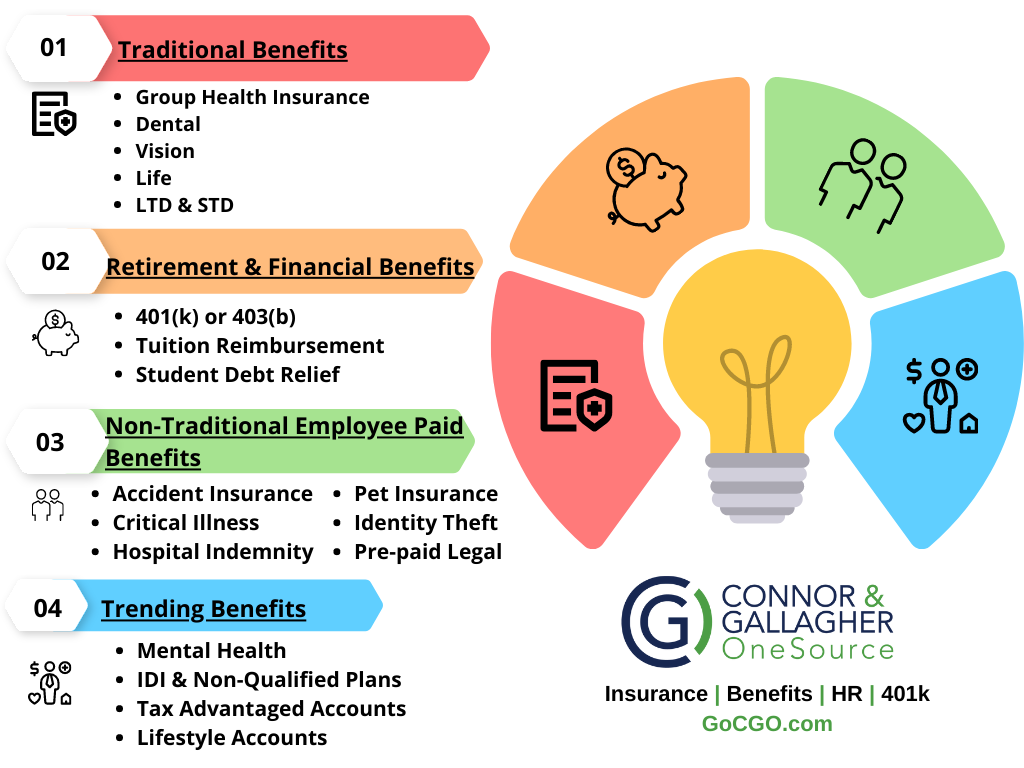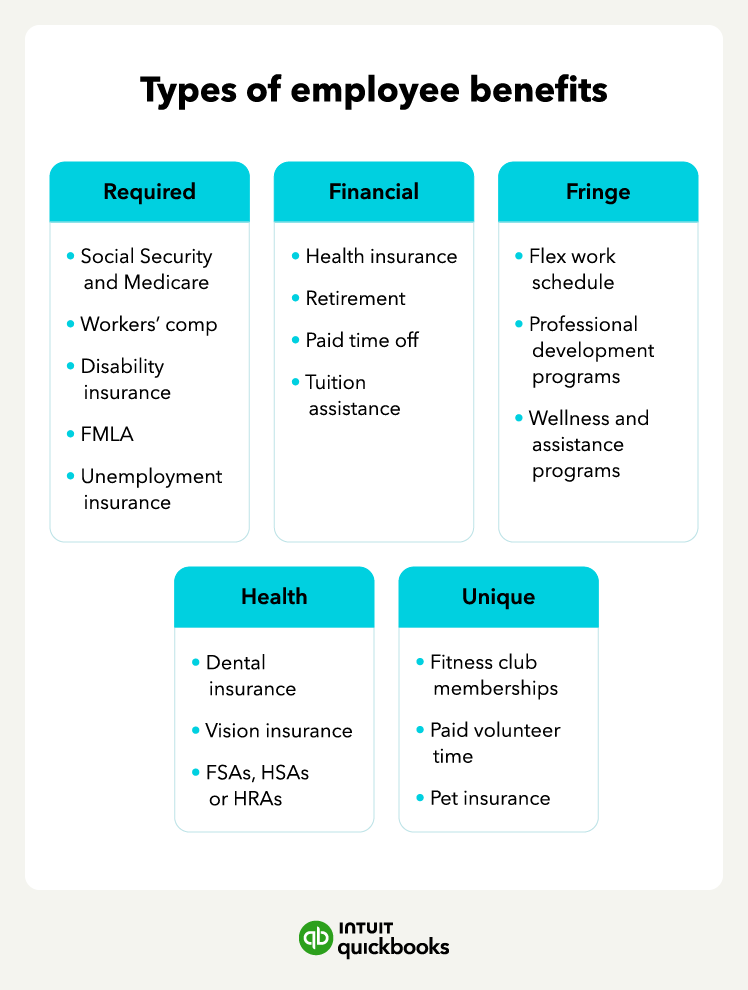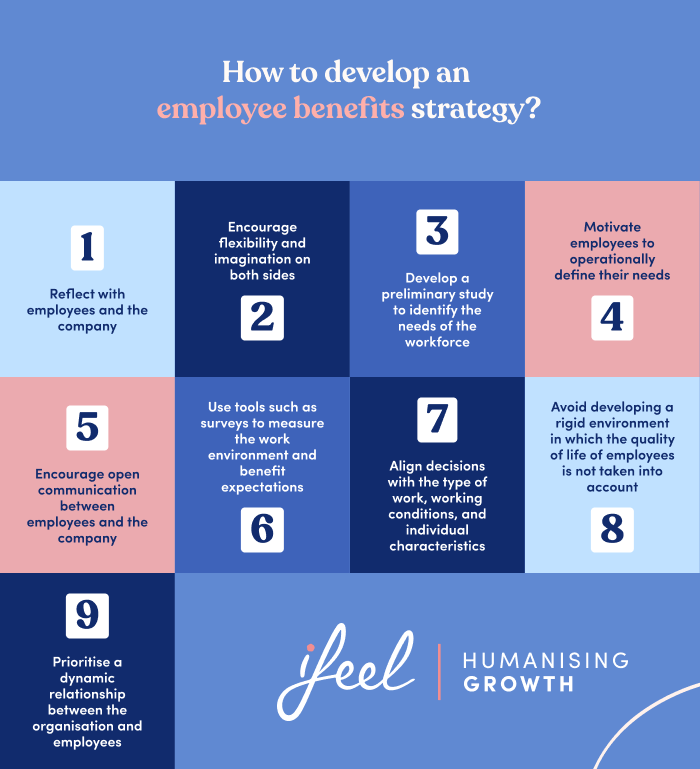Business Employee Benefits: A Comprehensive Guide to Attracting and Retaining Top Talent
In today’s competitive job market, offering comprehensive employee benefits is more important than ever. Companies that invest in their employees’ well-being not only foster a positive work culture but also attract and retain top talent. In this article, we’ll explore the key employee benefits that businesses should consider offering, the importance of these benefits, and how they can enhance both recruitment and retention efforts.

Why Are Employee Benefits Important?
Employee benefits are non-wage compensations provided to employees in addition to their regular salaries or wages. These benefits can significantly impact job satisfaction, productivity, and retention rates. Here’s why they matter:
-
Attract Top Talent: Candidates today are looking beyond just salary; they want a comprehensive benefits package that aligns with their lifestyle and personal needs. Offering a competitive benefits package can help your business stand out from others.
-
Boost Employee Morale: A well-designed benefits program shows employees that they are valued, which can increase job satisfaction and motivation. When employees feel supported, they are more likely to stay and perform at their best.
-
Improve Retention Rates: Offering attractive benefits can help reduce employee turnover. Employees are less likely to leave a company that takes care of their needs beyond just the paycheck.
Key Types of Employee Benefits
There are numerous types of employee benefits that can make a significant difference in a business’s ability to attract and retain talent. Let’s break them down into some of the most common and valuable benefits:
1. Health and Wellness Benefits
Health benefits are perhaps the most important and widely expected employee perk. They show that a company cares about the health and well-being of its employees.
-
Health Insurance: Providing access to quality health insurance plans is a must. Companies often offer different coverage options, including dental, vision, and mental health services.
-
Mental Health Support: Offering programs like Employee Assistance Programs (EAP) and counseling services can help employees manage stress, anxiety, and other mental health issues.
-
Fitness Programs: Some companies partner with gyms or provide wellness incentives, such as gym memberships or on-site fitness centers, to promote physical health.

2. Retirement and Savings Plans
Offering a retirement plan is an excellent way to show employees that you care about their future. Helping employees save for retirement is an attractive benefit, and it’s one that encourages long-term loyalty.
-
401(k) Plans: One of the most common retirement plans in the U.S., often with employer contributions to match a portion of the employee’s savings.
-
Pension Plans: Some companies offer pensions that provide a fixed monthly income to employees after retirement.
-
Financial Planning Services: Offering financial counseling or workshops can help employees make the most of their savings and investments.
3. Paid Time Off (PTO) and Holidays
Time away from work is crucial for employee mental health and productivity. Companies offering generous PTO are often seen as more supportive employers.
-
Paid Vacation Days: Offering paid vacation days gives employees the opportunity to rest and recharge.
-
Paid Sick Leave: Employees need to know they won’t lose income if they’re ill. Sick leave helps to reduce the spread of illness and keeps the workplace healthy.
-
Parental Leave: Offering paid maternity and paternity leave ensures that employees can balance family life without financial stress.
4. Employee Development and Education Benefits
Investing in your employees’ growth and development is a win-win. It not only improves employee satisfaction but also enhances the skills of your workforce.
-
Tuition Reimbursement: Companies that offer tuition reimbursement help employees continue their education, which is valuable for both the employee and the company.
-
Training Programs: Offering opportunities for employees to upskill through workshops, certifications, or industry conferences is a great way to keep employees engaged and productive.
5. Work-Life Balance and Flexible Scheduling
Work-life balance is increasingly important to employees. Offering flexibility in how, when, and where employees work can boost morale and retention.
-
Remote Work Options: Allowing employees to work remotely, either full-time or part-time, has become a key perk for many companies.
-
Flexible Hours: Offering flexible hours lets employees manage their workday around personal commitments, improving job satisfaction and reducing stress.
-
Job Sharing: Some companies allow two employees to share the responsibilities of one full-time position, giving them more flexibility in their schedules.

6. Employee Recognition and Perks
Employee recognition programs can have a huge impact on morale. Recognizing hard work and achievements helps employees feel valued.
-
Bonuses and Incentives: Performance bonuses or incentive-based pay structures reward employees for their contributions and drive motivation.
-
Employee Awards: Recognizing outstanding performance through awards or acknowledgment programs shows appreciation for hard work.
-
Discounts and Perks: Some companies offer discounts on products, services, or events, which can be a great perk for employees.
How to Choose the Right Employee Benefits for Your Company
Choosing the right benefits depends on several factors, including the size of your company, your industry, and the needs of your workforce. Here are some tips for selecting the right benefits:
-
Understand Employee Needs: Survey your employees to understand which benefits matter most to them. Focus on what will have the most impact on their satisfaction and productivity.
-
Stay Competitive: Research the benefits offered by competitors in your industry. Offering competitive benefits can help you attract and retain top talent.
-
Be Flexible: Not all employees have the same needs. Offering flexible benefits, such as health insurance plans with various options or flexible working hours, can help accommodate a diverse workforce.
-
Budget Wisely: While offering a generous benefits package is important, it’s essential to ensure that your business can afford it. Be strategic about your offerings to ensure you are investing wisely.
FAQs About Business Employee Benefits
1. What are the most common types of employee benefits?
The most common employee benefits include health insurance, retirement plans, paid time off, flexible work arrangements, and employee development programs.
2. How can employee benefits help improve retention?
Employee benefits contribute to a positive work environment, which leads to higher job satisfaction and loyalty. Employees are more likely to stay with a company that invests in their well-being and professional growth.
3. How can I improve my company’s employee benefits package?
To improve your benefits package, focus on understanding employee preferences, stay competitive with industry standards, and offer a mix of benefits that support both work and life balance.
4. Are employee benefits mandatory?
While certain benefits, such as health insurance under the Affordable Care Act (ACA) in the U.S., may be mandatory for larger employers, many benefits are optional. However, offering a comprehensive package can give your business a competitive edge in the talent market.
Conclusion
Offering employee benefits is not just about meeting legal requirements—it’s an essential part of creating a positive and productive workplace culture. By providing benefits that support your employees’ health, financial security, and work-life balance, you can improve morale, increase retention, and attract top talent. Keep in mind that a great benefits package is one of the most effective ways to differentiate your company from competitors and position it as an employer of choice.




